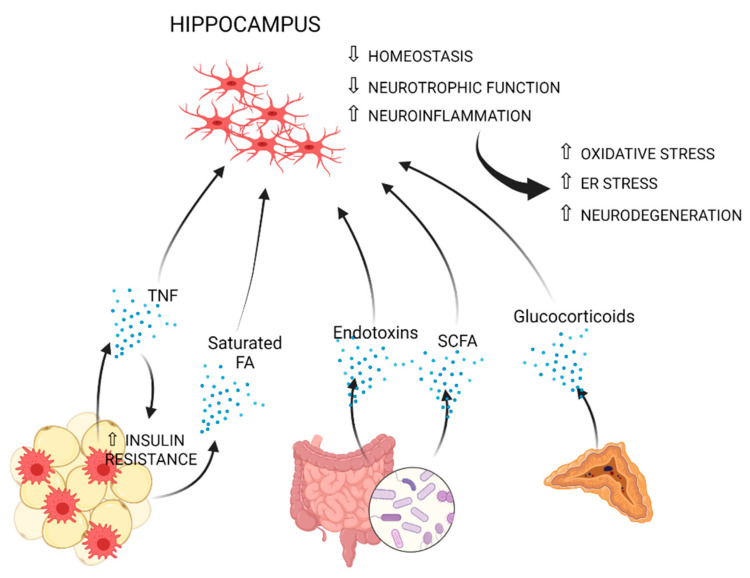Figure 1.
Peripheral immune, metabolic and endocrine routes, which may promote hippocampal microglial inflammation in obesity. Adipose-tissue-derived TNF and saturated fatty acids may exert microglial pro-inflammatory effects in the hippocampus. TNF promotes insulin resistance in the adipose tissue, which leads to enhanced lipolysis, further increasing the amount of saturated fatty acids in the circulation [10,88,89,140,188]. Gut microbiome-derived endotoxins and SCFA may also induce hippocampal neuroinflammation [189,190]. Chronically enhanced adrenocortical secretion of glucocorticoids may sustain microglia-mediated inflammation and neurodegeneration [191,192,193]. Collectively, these signals can lead to compromised homeostatic and neurotrophic function and sustained inflammatory activation of microglia, associated with oxidative stress, ER stress and neurodegeneration in the hippocampus [193,194,195,196,197,198,199,200,201,202,203,204].

